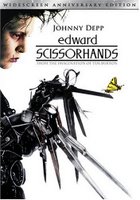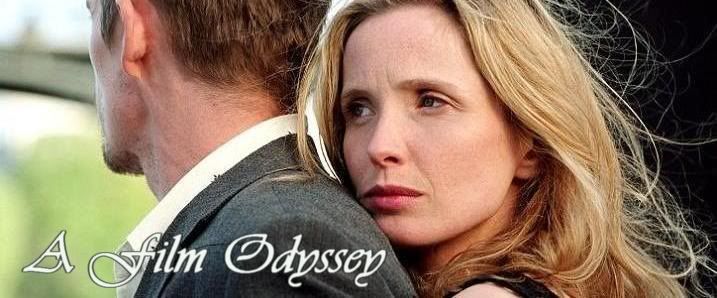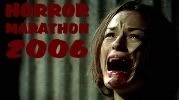Edward Scissorhands (1990)
 Johnny Depp's sympathetic performance as the asocial recluse Edward Scissorhands is so unique and heartfelt that, above all else, he deserves a better movie to star in. Tim Burton's works, even more so in his early films, are characterized by exaggerated characters and expressionistic imagery; here, the obtuse and haunting castle in which Edward resides contrasts the prim-and-proper caricature of the suburban American dream. The inventive visuals and overwrought characters are the best things about Edward Scissorhands, which strives to be the kind of dark fantasy that carves out an otherworldly niche for itself to explore new feelings and emotions that otherwise would be inaccessible in a typical representation of reality. But Edward Scissorhands is forced to adhere to a reminiscent and ultimately uninspired plot, one that siphons off half the wonder the film otherwise manages to achieve. This kind of creativity employed for the sake of routine tedium is not only an artistic injustice, but it results in the kind of movie in which anger arises from the lack of a better screenplay.
Johnny Depp's sympathetic performance as the asocial recluse Edward Scissorhands is so unique and heartfelt that, above all else, he deserves a better movie to star in. Tim Burton's works, even more so in his early films, are characterized by exaggerated characters and expressionistic imagery; here, the obtuse and haunting castle in which Edward resides contrasts the prim-and-proper caricature of the suburban American dream. The inventive visuals and overwrought characters are the best things about Edward Scissorhands, which strives to be the kind of dark fantasy that carves out an otherworldly niche for itself to explore new feelings and emotions that otherwise would be inaccessible in a typical representation of reality. But Edward Scissorhands is forced to adhere to a reminiscent and ultimately uninspired plot, one that siphons off half the wonder the film otherwise manages to achieve. This kind of creativity employed for the sake of routine tedium is not only an artistic injustice, but it results in the kind of movie in which anger arises from the lack of a better screenplay.Like Frankenstein before him, Edward was made from scratch by an inventor (although not necessarily the mad scientist type here), leaving him without family or any others of his kind in whom to find company or solace. The inventor died before he could finish his creation, leaving Edward not with hands, but unwieldy scissors meant only to be temporary tools. When a well-meaning resident of the town below happens upon Edward's castle during her rounds to sell Avon products, she discovers the lonely figure and brings him home with her. Community gossip ensues, and while Edward's existential plight proves useful when his skills find their proper outlets, it isn't long before the greedy townsfolk take advantage of his abilities and hapless social skills. An understated connection develops between Edward and the young Kim (Winona Ryder) (in a dash of Beauty and the Beast), who seeks to shield him from the misunderstandings of the world.
Edward himself is one of the great creations of modern film, like a leftover gothic relic from the silent era. His early efforts at conforming to typical societal standards are both tragic and endearing: he cannot begin to put on regular clothing without tearing the garments to shreds, and the easily overseen image of him precariously balancing a pea on his scissor blades (during a desperate attempt to eat dinner without the means of traditional silverware) brings to mind the simple plights of Chaplin's tramp in it's simple humor. Unfortunately, whereas Edward represents Burton's creativity at its peak, the storyline screams out for more creativity and substance. Unlike Burton's own Big Fish (arguably the director's most accomplished film), which was truly emotional in it's own right, Edward Scissorhands' efforts at emotional affection are poorly manipulative and reliant upon hollow tactics that, in the end, are simply going through the motions without drawing from anything deeper within.
Some of Edward Scissorhands' flaws are relative (actresses as young as Winona Ryder should never be forced to play elderly versions of themselves), but the indulgences in blatant logical gaps that serve only to perpetuate Edward's status as a social outcast are beyond forgiveness. Edward's persecution is tragic in all the right ways, and a cunning commentary on both human nature and, in this context, American culture, but it's continuation relies on tactics most writers should learn to avoid by the time they've passed their Screenwriting 101 course. Whenever Edward Scissorhands stands on the brink of becoming truly magical, it truncates itself into settling for less. That Tim Burton has appropriately used his own unique zeal in many other films doesn't make Edward Scissorhands feel any less like a lost opportunity.





